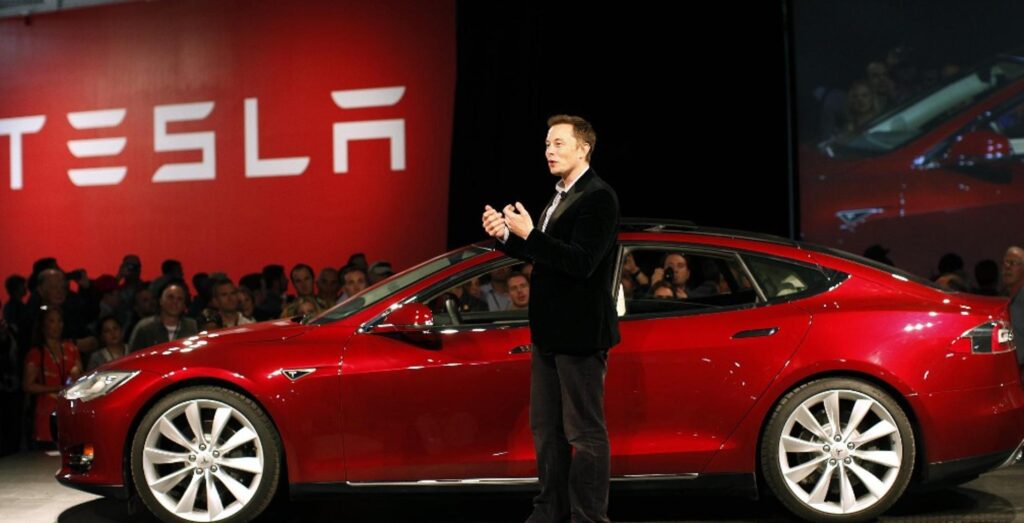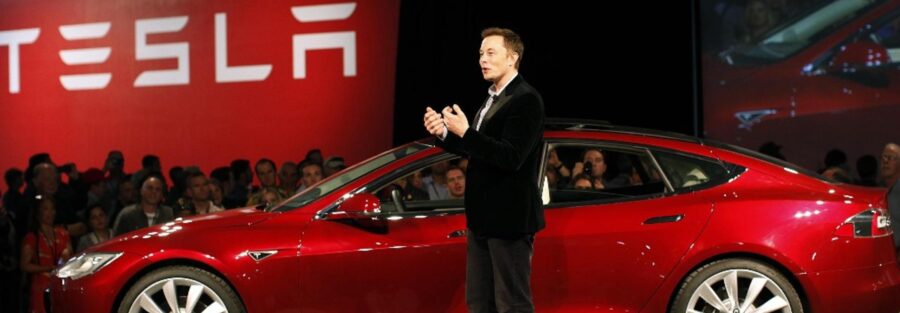This article will provide you with insight into Tesla Company through SWOT Analysis. Strengths, Weaknesses, Opportunities, and Threats make up the acronym SWOT. A strategic planning technique, SWOT analysis, recognizes and comprehends several facets of a company or project. It offers a thorough breakdown of the variables influencing the CEO’s and the corporate managers’ decisions. With an emphasis on essential elements that impact the company’s performance and possible areas for expansion and development, it seeks to give a thorough picture of its standing in the relevant market. When making decisions and developing a strategy, it might offer insightful information.
Do you need Assignment Help Online? Contact us to hire the best Assignment Experts!
About Tesla Company –
Tesla is an American multinational automotive and clean energy company headquartered in Austin, Texas, which designs, manufactures, and sells electric vehicles, stationary battery energy storage devices from home to grid-scale, solar panels and solar shingles, and related products and services. It was incorporated in July 2003 by Martin Eberhard and Marc Tarpenning as “Tesla Motors”. The company’s name is a tribute to inventor and electrical engineer Nikola Tesla. In February 2004, Elon Musk joined as the company’s largest shareholder; in 2008 he was named CEO. It is one of the world’s most valuable companies in market capitalization.
Tesla has subsidiaries like SolarCity and Maxwell Technologies that complement its mission of sustainable energy. These companies play an essential role in Tesla’s broader vision of advancing renewable energy solutions. SolarCity, a child company of Tesla, specializes in solar energy services, including solar panel installation and solar energy storage solutions. On the other hand, Maxwell Technologies, another subsidiary of Tesla, focuses on ultracapacitors and energy storage systems for various applications. Therefore, these companies contribute to Tesla’s goal of promoting sustainable energy practices.
Under Elon Musk’s leadership, Tesla has seen remarkable success with its electric vehicles like the Model S and Model 3, setting new benchmarks in the automotive industry. These vehicles have not only redefined the concerns of electric cars but also pushed the boundaries of innovation in the field. However, Tesla has faced challenges such as production delays with the Model X SUV. Despite, these setbacks Tesla’s commitment to sustainable energy solutions and cutting-edge technology remains unwavering. The company’s ability to innovate and adapt has been pivotal in its journey towards shaping the future of transportation and renewable energy.
Table of Contents
SWOT Analysis of TESLA Company –
Strengths of Tesla Motors:
Innovative Technology – Tesla is a pioneer in electric vehicle technology. Their vehicles, known for their cutting-edge technology, have revolutionized the concept of driving. Tesla is known for its advanced features like Autopilot and over-the-air software updates. As a result, the market believes in the company and anticipates that it will create profitable, competitive products, which will inevitably result in significant financial advantages.
Strong Brand Image and Value – Tesla has established itself as a leading brand in the Electric Vehicle Market, associated with innovation, sustainability, and luxury. It is a brand that everyone in the world is familiar with. It has strong brand recognition. It is the world’s most well-known manufacturer of electric vehicles. Elon Musk, Tesla’s iconic CEO and major shareholder is one of the world’s most renowned, influential, and appealing businessmen. In addition to that, Tesla was the leading luxury carmaker in the financial year 2019, delivering 367,500 automobiles. Its extraordinarily high sales growth has been credited with the company’s unrivaled rise in luxury and innovation. In June 2020, Toyota was surpassed by Tesla as the most valued automotive manufacturer.
Vertical Integration – Tesla’s vertical integration strategy allows it to control key aspects of production, ensuring quality and efficiency.
Supercharger Network – One of the significant barriers to EV adoption has been the battery range barrier. The batteries of electric cars were not strong enough to be suitable for long rides. With innovation in lithium-ion batteries, things have improved but Tesla has already found an alternative solution for it using its supercharger network service.
Tesla’s extensive supercharger network provides a competitive advantage by offering fast and convenient charging options for its customers.Strong Leadership – Elon Musk, the creative and charismatic CEO of Tesla, has played a key role in the company’s success. In the tech sector, Musk is well-liked and has a proven track record of innovation and a visionary entrepreneur like him further amplifies the innovative image of Tesla Motors.
- Sustainability – Tesla’s commitment to environmental sustainability, combined with its luxury appeal, has created a unique brand positioning. This has resulted in a fervent fan base, with many Tesla owners becoming brand evangelists, promoting the company’s vision and products.
Weaknesses of Tesla Motors:
Dependence on a Single Market – Tesla is mostly dependent on the market for electric vehicles, which currently make up a small share of the total automobile market. Because of this, the business is susceptible to shifts in the market and customer preferences.
Too expensive – Tesla’s electric vehicles are expensive compared to traditional gasoline-powered vehicles, which limits their appeal to mainstream consumers. The company’s focus on luxury and performance makes its products less accessible to a broader segment of people.
Dependence on Government Incentives – Government subsidies and tax breaks have benefited Tesla and increased demand for its products. These incentives could alter, though, and that could affect the company’s ability to thrive in the future.
Limited Production Expertise – In comparison to its more seasoned rivals, Tesla is a relative newcomer to the automobile business and has little production expertise. Due to this, the business can find it challenging to compete on price and efficiency.
Manufacturing Issues – In the past, Tesla has experienced production issues, especially with its Model 3 sedan. Due to challenges in increasing production to meet demand, the company has experienced delays and lower profitability.
Concerns about Employee Safety – For erecting a tent production line without permission or safety assessment, Tesla was recently fined. Additionally, the business failed to inform employees of the dangers of spending extended amounts of time in a tent in the intense heat of California. The intense heat inside the tent might have made it difficult for some workers to breathe.

Opportunities for Tesla Motors:
Diversification of Product Line – Renewable energy items such as energy storage devices and solar panels are already part of Tesla’s product diversification. In addition to expanding into new areas like electric boats and airplanes, the corporation may continue to diversify the products it offers.
Global Expansion – Although Tesla is well-established in developed markets around the world, there are still a lot of undiscovered markets for its products, especially in developing nations. In these markets, the business can grow its networks of sales and distribution and attract new clients.
Technological Advancements – With its reputation for cutting-edge technology, Tesla has the chance to keep pushing the envelope in the fields of electric cars and renewable energy technology. The business might advance battery technology, enhance its capacity for self-driving, or produce brand-new, energy-efficient goods.
Growing Awareness of Climate Change – As more people become aware of how climate change is affecting the world, there is an increasing need for sustainable goods and solutions. Tesla has the chance to establish itself as a pioneer in the sustainability movement and draw in customers who care about the environment.
Production of in-House Batteries – By creating its battery cells, Tesla will be less dependent on Panasonic, which is currently its main source of batteries. This move might significantly alter Tesla’s future if it is implemented.
Financial considerations – Tesla is a high-end car company with ultra-modern technologies, thus its products are extremely expensive. To reach a larger audience, there is, nevertheless, ample opportunity to provide fewer features and a larger range of models. Starting with the less expensive, slightly-feature-limited Model S, the Tesla Model 3 is an excellent option.
Also Read An analysis and evaluation of an SME’s global marketing strategy
Threats for Tesla Motors:
Growing Competition – Both newcomers to the electric vehicle market and established automakers are posing a growing threat to Tesla. It could be harder for Tesla to hold onto its market share if these rivals have environmental brands, more resources, and cheaper prices.
Disruptions in Supply Chain – Disruptions to the supply chain could affect Tesla’s production and profitability because the company’s supply chain is intricate and depends on a network of partners and suppliers. Examples of these disruptions include shortages of components or raw materials.
Cybersecurity concerns – Since Tesla depends largely on software and technology for its goods and services, there are cybersecurity concerns for the business. The company’s reputation and sales could be negatively impacted by cyberattacks or data leaks.
Economic Conditions – Recessions and interest rate fluctuations are two examples of events that could influence Tesla’s sales and profitability. These circumstances can lessen customer demand for the company’s goods and affect its bottom line.
Pedestrians Are Still Concerned About Self-Driving Cars – US adults still feel unsafe walking around self-driving cars, according to a YouGov survey. The most fearful group of people to be around self-driving cars is those over 55.
Absence of Self-Driving Regulations – Since many nations, including the US, lack appropriate laws governing self-driving cars, these limitations have an impact on Tesla’s sales. Uncertainty about the future of Tesla’s self-driving initiative is heightened by this perplexing and complex legal predicament.
Tesla’s Business Analysis and Recommendations –
To broaden its scope for commercial ventures, Tesla’s motor production division has created several components. To provide their clients with the most dependable, top-notch products available on a global scale, they made several layout, style, and functional enhancements.
To maintain its position as a leader in the electric vehicle and energy industry, Tesla must rise to address some significant challenges in the coming years. One of the main challenges that the company currently faces is the need to strengthen its international presence. While Tesla has made significant progress in developed markets, it needs to expand its operations in emerging markets to capture the growing global demand for electric vehicles and renewable energy.
By diversifying its geographical footprint, Tesla can mitigate the risks of depending on a single market and capitalize on growth opportunities. This would allow the company to remain competitive and increase profitability in the long run.
Another important challenge for Tesla is to continue investing in research and development to produce innovative, high-tech products. Despite the intense competition in the automotive industry, Tesla has proven that it can sustain its growth by introducing cutting-edge technology and offering superior customer experiences.
In conclusion, Tesla has the potential to overcome these challenges and maintain its position as a leader in the industry. By addressing these challenges head-on, Tesla can continue to provide innovative and sustainable solutions to its customers while driving the transition to a low-carbon economy.
This SWOT analysis aims to identify areas that Tesla can focus on to improve its overall competitiveness, growth, and development.
These areas include:
- Continue to expand or increase its existing operations in emerging markets.
- Continue to invest in product innovation to remain competitive in the electric vehicle market
- Diversify its supply chain to reduce supply-side risks
In conclusion, Tesla, Inc. has made remarkable strides in the electric vehicle and sustainable energy industry, capitalizing on its strengths in innovation and branding. However, it faces challenges related to production, cost, and competition that require strategic planning and adaptability. Tesla Motors has huge potential to grow in emerging markets like India, Indonesia, Bangladesh, etc. and with the help of continuous innovation and R&D, Tesla can continue to dominate in the electric vehicle industry.
Do you need Assignment Help Online? Contact us to hire the best Assignment Experts!
You may also be interested in SWOT Analysis for ALPHABET Company

